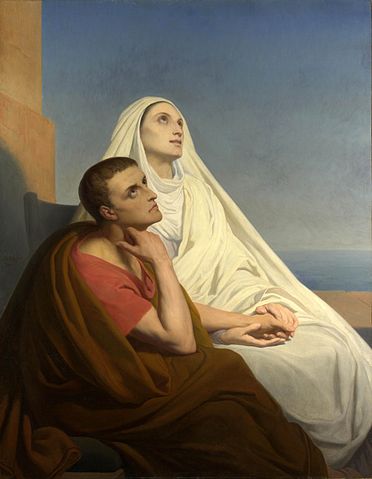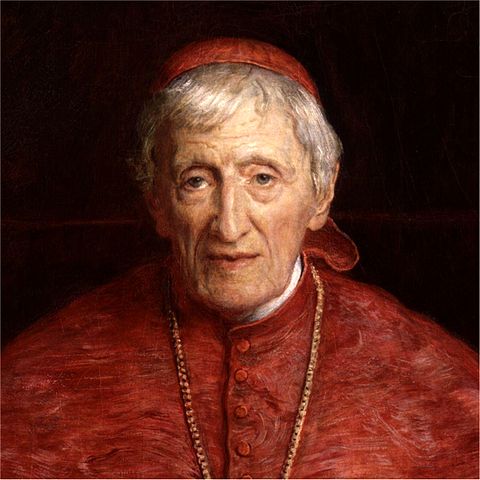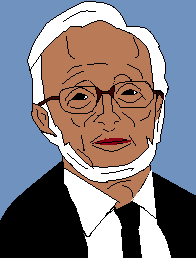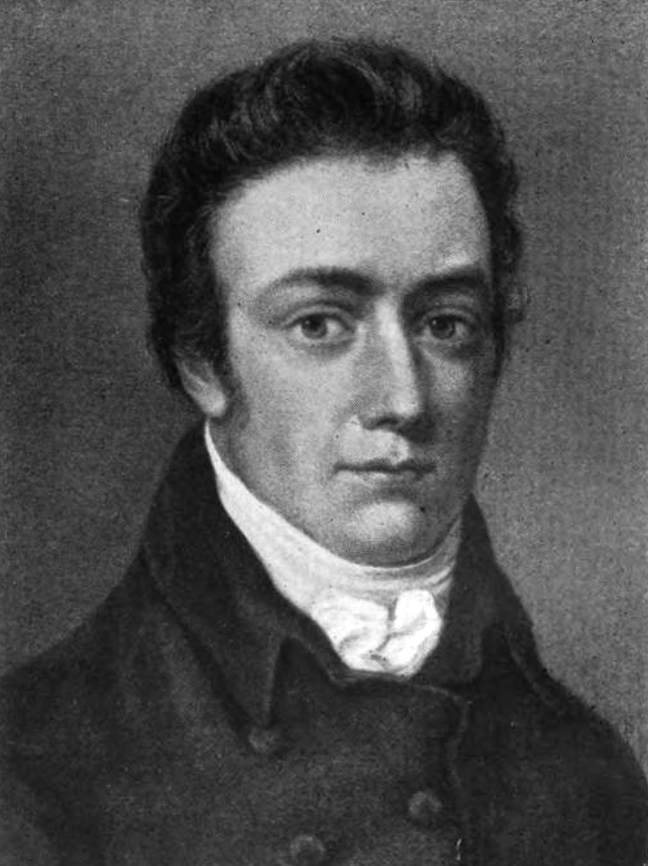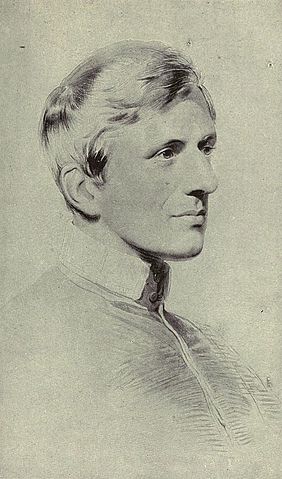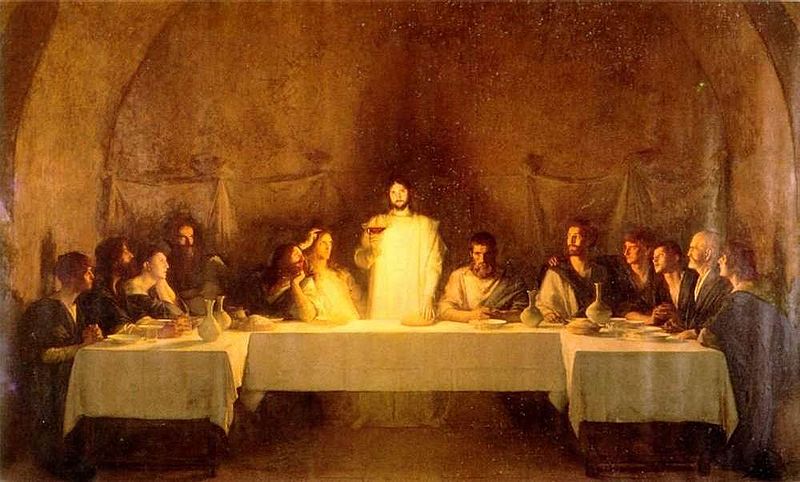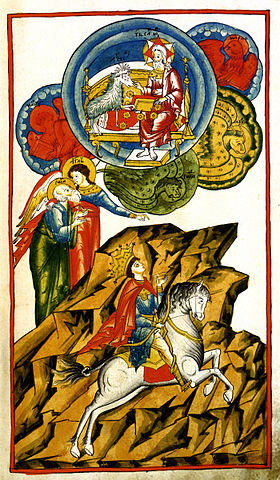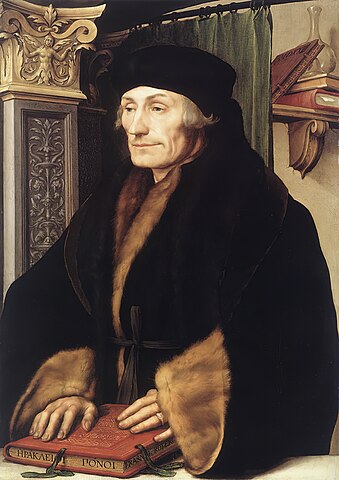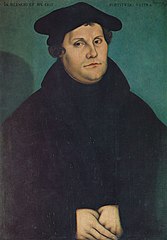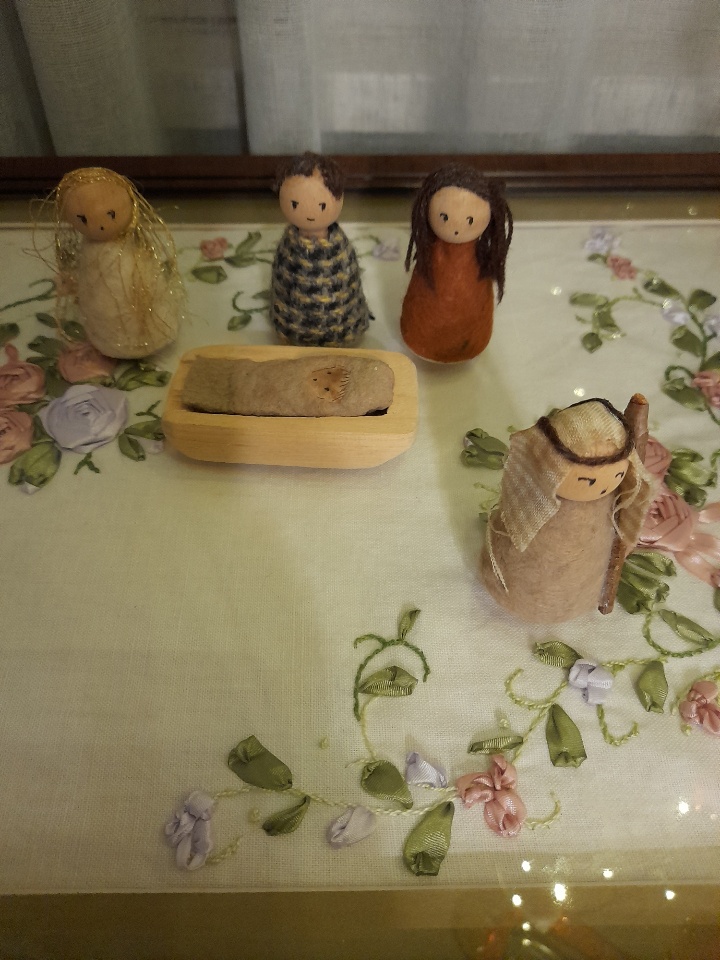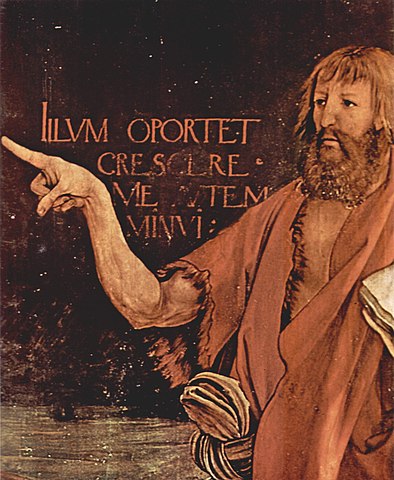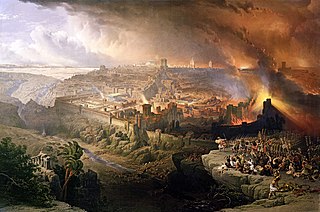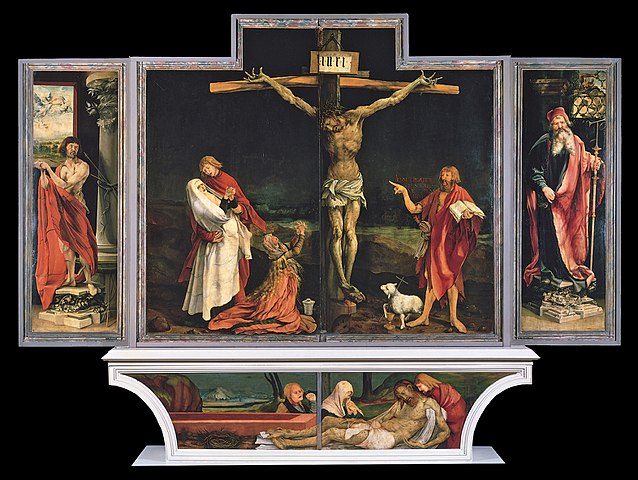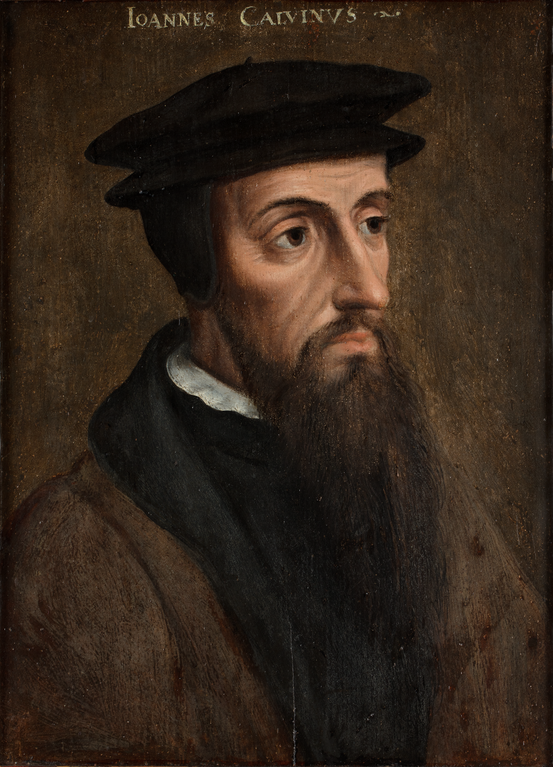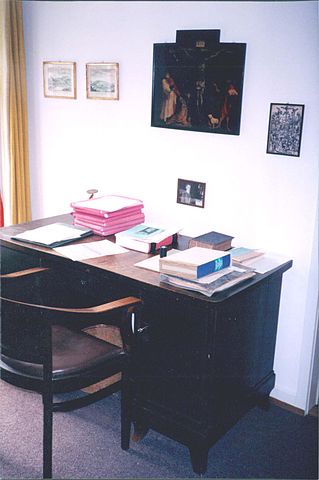Before I start talking about theology I just wanted to share with you a collage of the birds from our garden over Winter time. It is very difficult for some birds to survive the winter. They don’t fly South and they don’t collect stocks in the Winter time. When there is no deposit of food in the Winter and with the deep snow we feel it is important to give bird food.

How do we understand the nature of dogmatic theology?
From the point of view of the Fall we all make mistakes and we all sin. This is especially true for theologians through the centuries. Although we need to be empathetic to theologians, we also need to be critical because the Church at times has needed to be protected from false teachings. In the wake of a defense for the Gospel inadvertently theologians have made mistakes that have influenced the very foundations of society. So then in writing this Weeks blog I found it quite deep so because of this I am writing a simpler version of that blog for the non specialist.
Sometimes I imagine that I am a cowboy in the Wild West of the United States in some small town of no significance. I go to the bank and I put into the bank a 100$, £ or euros. I have deposited a 100 Euros into that bank and I want it to stay safe. Lo and behold the next day some robbers come, kill the sherif and plunder my deposit!
I have lost my hundred euros and the thieves go to the saloon, spend my money on women, food and alcohol. Not a pretty story but you now understand what a deposit is. A deposit is a thing of value which needs to be protected. In the same way the Church also talks about a ‘deposit of faith’. The deposit is what was passed down to the Church in the Apostolic teachings and their lives by the Holy Spirit. Various Churches see the deposit in different ways. Some think it is just the Bible such as Luther. Others see the ‘Apostolic Tradition’ as part of this deposit. I am not here to argue which is correct or not, I simply wanted to explain what it is.
Now in today’s lesson Gunton talks about St Augustine and J H Newman. We have all heard of Augustine, but Newman was a Roman Catholic theologian with Anglican roots coming from the 19th century. Augustine Lived in the 4th century and Newman lived in the 19th century.
Augustine had a problem as sometimes he could lose arguments with his adversaries the Manichaeans, so he devised a way of keeping the Manicheans in their place. When Augustine would probably lose an argument, he would call on the authority of the Church to keep the adversaries in their place. He could do this because Augustine’s Deposit of the truth had Scripture and the Apostolic tradition so he could do this. The problem of this way of winning arguments would haunt the church in the future and the reality is that calling on authority isn’t needed if you are confident in the One you have believed in.
In theology balance is very important and how you tell the truth. In Newman’s day the Reformation and the Enlightenment had already taken place and there were a host of movements of ideas. Locke for example had reason and revelation as concepts. The problem was that in his view revelation as knowledge should always be in subject to reason. This reason was known as Rationalism and the idea was to base the whole of human knowledge on reason. Reason became mechanized and the human beings faith was not very high on the agenda. Explaining miracles away and seeing things in purely naturalistic ways had the effect of writing God our of human experience. This was a very serious situation.
Newman was concerned about this, and he argued very strongly that we are not like robots, but genuine human beings and all knowledge cannot be compartmentalized this way. We also have personal knowledge, and it may not be perfect knowledge, but it is still knowledge. Newman unfortunately moved on parallel lines with Augustine. Perhaps if he looked a little more closely at Coleridge who by then was an orthodox Anglican a better way of explaining the Gospel could have happened. Newman missed this opportunity even though his ideas were a hundred years in advance of the Roman Catholic Church. A lot of the questions Newman came up with and the importance of the Bible were discussed in the 2nd Vatican council in the 1960s.
Reflection
What can we learn from this. When doing systematic or Dogmatic theology we need to consider the ‘Deposit of Faith’ and what it contains. Whether it is Thomas Aquinas or John Calvin, every theologian needs to take this into account. Some theolgians have been naughty such as Pannenberg and his use of Hegel for thesis, antithesis and synthesis or Aquinas’ use of Aristotle who was a pagan. This is my view. What do you think.
This first reading has now ended. This is my easy version of what I think Gunton wanted to say about Augustine and Newman. You do not need to read the next section unless you are up for a challenge. Thanks for reading this far.
John Henry Newman and Augustine on the use of authority
When thinking about the Apostolic deposit in relation to the Church and tradition where is it found?
Please make sure that you understand the following concepts before reading further.
Dictionary Key words
Dialectic = through the use of speech attempting to get closer to the truth.Organic = used as a metaphor to explain some spiritual truth
Doctrine = teaching for example, ‘the doctrine of the Trinity’ means ‘teachings concerning the Trinity’
Deposit of faith = the original Apostolic teachings given to the Christian church. This can be expanded in some churches to include the original traditions or reduced just to the teachings of the Bible. There is debate here between Protestans and Catholics.
Dogma, dogmatic= teaching
Introduction
As I said last Week, we are going through Gunton’s book on learning about theology through the theologians. It looks like an easy task, but it is not. It requires some spade work sometimes:
- J H Newman and his Theory of Doctrinal Development
- Professor Gunton’s critique of Newman on the Apostolic Deposit of Faith and if the balance is correct.
John Henry Newman part 1
“John Henry Newman CO (21 February 1801 – 11 August 1890) was an English theologian, academic, philosopher, historian, writer, and poet, first as an Anglican priest and later as a Catholic priest and cardinal, who was an important and controversial figure in the religious history of England in the 19th century. He was known nationally by the mid-1830s,[11] and was canonised as a saint in the Catholic Church in 2019.” (Taken from en.wikipedia.org/wiki/John_Henry_Newman)
Dr James Merrick on the Theory of Doctrinal Development by J h Newman
Before looking at Guntons appraisal of J H Newman on this subject I felt it necessary to look at Newman’s teachings on this. I think James Merick has done a lot of the spadework so I will at what he has to say about it.
Merrick writes:”This task prompted him to write An Essay on the Development of Christian Doctrine. In this essay he described the growth of doctrine as organic, like the growth of an acorn into a tree. An example of doctrinal development is the Scriptural depictions of Mary as the New Eve and Ark of the Covenant. This title required her holiness and moral purity, developing to the point that the Magisterium defined the dogma of her immaculate conception in 1854.
This process of doctrinal development had discernible characteristics one can use as criteria to distinguish development from corruption. However, as he worked through this task, Newman found that “to be deep in history is to cease to be a Protestant” (Newman, Essay on the Development of Doctrine, 8). He became a Catholic in 1845. His study led him to conclude that the Roman Catholic Church is the only contemporary church that retained and faithfully developed the doctrines of his beloved early church.” Taken from media.ascensionpress.com/2019/10/18/st-john-henry-newman-and-his-critique-of-modern-ideas/
Evaluation
So, then Newman saw doctrine growing like a tree. Doctrine is seen as ‘organic’ from a seed you can get a tree. Merrick goes on to use an example:
“…development is the Scriptural depictions of Mary as the New Eve and Ark of the Covenant. This title required her holiness and moral purity, developing to the point that the Magisterium defined the dogma of her immaculate conception in 1854. (from ibid)”
In the second paragraph as Newman looked at the history of the Church, it brought him to believe that the Roman Catholic Church was the true church as it is supposed to have stuck close to the deposit of the Apostolic faith.
Guntons Critique of John Henry Newman on the idea of the deposit of the Faith Part 2
In some ways J H Newman was a hundred years ahead of his time but in other ways he wasn’t able to break free from authoritarianism which he possibly inherited from St Augustine somehow. For Gunton’s critique, he starts with Augustine’s ‘… unique combination of rationalism and authoritarianism.’ (Page 19) Augustines meeting with Manichaeism,… his confidence was shaken that the rationality of Christian truth needed some type of compensational tendency… Falling back on ecclesiastical authority thus Harnack wrote,”… the thousand doubts (Augustine’s doubts) excited by theology, and especially Christology , could only be allayed by the Church… The Church guaranteed the truth of the Faith, where the individual could not perceive it… Openly he proclaimed it: I believe in many articles of the Church’s authority; nay, I believe in the Gospel itself merely on the same ground.”( From page 19)
This is quite shocking what Augustine believed at this point. Authority comes Trinitarianly by the Father through the Son and the Holy Spirit. Here though authority has been invested in a formal Church. Gunton says that this problem in Augustine runs parallel with Newman when he says,”… That the Church is the infallible oracle of truth is the fundamental dogma of the Catholic religion”(From page 20).
Gunton goes on to say about Augustine that, “The dialectic of faith and reason of trust in authority that drove how Augustine had reasoned also became the pattern for Westen Theology upto the time of the Reformation and the Enlightenment.” (From page 20) The enlightenment didn’t help things either. Reason and revelation with lock became a problem in that revelation was made subordinate to reason. Reason took the place of the authority of the Church. Gunton says that in this sort of situation Newman was right to repudiate this situation.
What this means is that the Church gave too much emphasis to ‘authority’ as a rationale. The Enlightenment smashed this rationale. The problem was that in thinking about the Apostolic deposit, too many eggs were put into the Authority of the Church and this was a mistake, the same mistake Augustine made has come to haunt the Church.
In fact Newman in his Grammar of Assent moved behind Locke and Martin Luther back to Augustine thus he regurgitated past mistakes from the 4th century.
Thus there are three areas rationalism goes wrong:
- ‘Rationalism can be an abuse of Reason… its purposes were never intended and is unfitted..
- The tendency to hold that unless everything is known then nothing can be
- Thirdly rationalism’s tendency is to reduce religion to morality or utility
The first mistake is to think of knowledge as impersonal and scientific. People have their own personal knowledge and the problem of rationalism here is in a way to dehumanize human knowledge.
The second mistake is to see everything in terms of closed systems. Unless everything in known nothing can be known.
Thirdly by giving primacy to reason religion is de mythologized (the important elements of mystery in religion is taken away) (from pages 21 to 23)
Newman did well to critique these elements in society in the 19th century and yes in these pages one will find elements that show Newman could have said a lot more. However, as I said earlier Newman did well to spot these movements in the 19th century.
There were problems with with Newman’s position, but this can happen in any century. For me as well as the above I found it interesting that some of the problems could have been alleviated if faulty shared presuppositions with who he was debating with didn’t get in the way.
Gunton finishes of by saying that if Newman had took on board what Coleridge was saying (except when he was in Unitarianism and hooked on opium). As Coleridge could see things more wholistically this could have helped Newman. Coleridge finished his life as an orthodox Church of England theologian. These are some of the date between the lives of the two theologians:
Coleridge
Born 21 October 1772
Born John Henry Newman 21 February 1801
Died 25 July 1834 (aged 61)
Newman
Died 11 August 1890 (aged 89)
When Newman was born Coleridge would have been about 28 years old. Thus when Newman was 20 years old Coleridge would have been 58 years old and he died at 61 years of age. Thus at this stage it is a possibility that Newman knew about Coleridge’s more mature thinking.
Reflection
Theologians along with road sweepers, weavers, teachers, doctors et al. We all make mistakes and theologians make mistakes too. From the little that I did read, that the contents of the Apostolic Deposit should rest more on Scripture. Then on early Church Fathers and not to be too dependent on one or two theologians calling the shots. What I mean is Augustine and Aquinas as major repositories of truth at the expense of faith. This also goes for Protestant theologians who put too much emphases on certain individuals even if it is Luther and Calvin. I have the greatest respect for these theologians, but the Fall has affected every person. The main point I get from this that Dogmatic or systematic theologians need to be aware of these pitfalls so that they do not make the same mistakes of the past.
